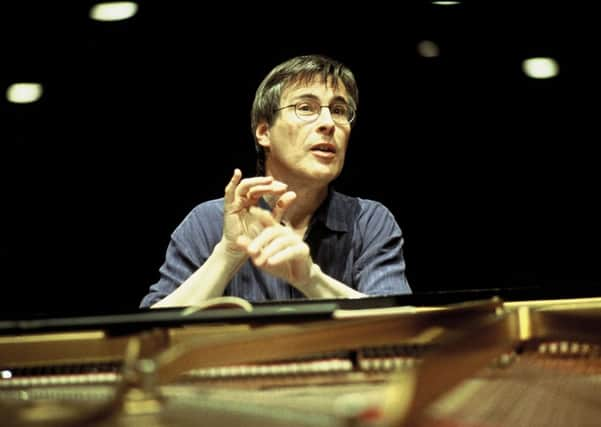Viral conductor Zacharias returns to Scotland


It was a cool display of exasperation. Zacharias, who was directing the Gothenburg Symphony Orchestra from the piano, simply lifted his hands from the keyboard, instructed the offending audience member “not to answer and let it ring”, before effortlessly picking up the performance from where he left off.
“I’m now more famous for NOT playing the piano,” says Zacharias, who was astonished when the story “made it everywhere, even the Los Angeles Times”. “You can’t always interrupt a performance, but I was playing a tiny solo section, and I just thought I’d let the culprit boil in his own phone sound.”
Advertisement
Hide AdMore typically, the incident didn’t appear to faze him, and the performance continued in the precise, probing and stylish vein that is his hallmark.
Here in Scotland we know that side of him intimately, through his marathon associations with the Scottish Chamber Orchestra (directing all of Mozart’s piano concertos in 2000 from the piano), his regular residencies at the East Neuk Festival, and appearances at the Edinburgh International Festival, all of which feature again in his diary over the coming year.
This week, he’s in Edinburgh and Glasgow conducting the SCO in repertoire he’s comfortable with: Haydn, Mozart, Ravel and Poulenc. He also reveals he’s back at the EIF next summer, performing sonatas with violinist Frank Peter Zimmermann. A familiar figure in familiar surroundings.
But in truth, the Zacharias we see nowadays – as music director of the Lausanne Chamber Orchestra, principal guest conductor of the Gothenburg Symphony, and artistic partner with Minnesota’s St Paul Chamber Orchestra – is noticeably more daring than the pianist who, up to the age of 40, operated in a self-contained comfort zone defined principally by the Austro-German repertoire of Haydn, Mozart and Schubert, with Chopin, Scarlatti and Ravel thrown in for good measure.
The transition to conducting – which now accounts for 80 per cent of his concert activity – has, he says, opened his mind to areas of repertoire he would never have considered before. “I love contemporary art, but as a pianist, I do not play music of that time,” Zacharias admits. “I have to understand what the music is doing harmonically. With 12-tone music and other similar areas I didn’t feel they meant anything. So as far as the 20th century went, it was Ravel, Bartok, then bye-bye!”
So why is it, as a conductor, that he suddenly feels at ease with the likes of Schoenberg’s Second Chamber Symphony and Charles Ives’ Three Pieces in New England, works he freely admits being “excited by”, and which are now in his repertoire?
Advertisement
Hide Ad“When I conduct, I’m more daring, because I don’t have to learn all the notes,” he candidly explains.
In fact, Zacharias considers conducting to be a more natural channel for him. “Conducting was my main thing as a student, I was afraid of a career as a pianist,” he recalls.
Advertisement
Hide AdBut his early success in winning major piano competitions sent him on a route he didn’t anticipate. “The piano went so well, I left conducting for a while.” Until he was 40, that is, when chamber orchestras he was working with – the SCO among them – started asking him to conduct as well as play.
He admits to hiding behind the piano. “It’s a solitary life as a pianist, where there’s no active human response; no-one tells you you’re stupid. With conducting, I had to learn what it means to face people. It was tough at the start.”
Holding back till later in life, he says, was the right decision. “The benefit of being older is that you have a natural authority when the orchestra are younger than you. Sure, young conductors learn a lot these days from sitting and watching. But when the moment comes, and you see agents pushing them, they have to prove themselves under enormous pressures.”
Zacharias, as we well know, has nothing to prove.
• Christian Zacharias directs the Scottish Chamber Orchestra at the City Halls, Glasgow, 20 December; and the Queen’s Hall, Edinburgh, 21 December, www.sco.org.uk